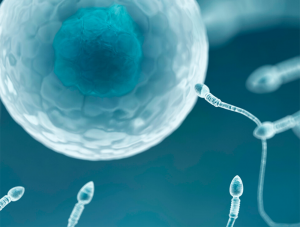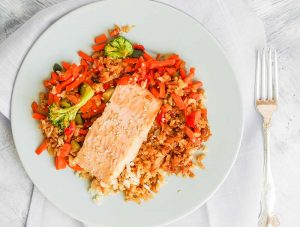I run. OK, I am like a turtle through peanut butter, but my exercise of choice is long distance running (10-15kms).
I have been running all my life, short distance when I was young, but in the last 4-5 years I’ve started long distance running, in an effort to improve my health and boost my energy levels. I love the solitude and freedom of just running; often running early in the morning when it is still dark and most people are hitting the snooze button. I do not run to win events or be the best, I run as I can do it when I want, it fits into my crazy schedule, I can do it at my own pace, it makes me feel good, helps to manage my weight and best of all – I see the most amazing sun rises.
Whether you run for fun, like me, or you want that winning edge, most of us love the energy boost we feel at the end of our time pounding the pavement. But, have you been noticing that after the energy boost, comes an energy slump, headaches and it takes days to recover? One of the main reasons new clients seek me out is that even though they’re eating healthily and running regularly, they’re exhausted….and don’t know why.
If this sounds like you, seeing a dietitian who is trained in sports nutrition is wise. A joint position paper by the American Dietetic Association, Dietitians of Canada, and the American College of Sports Medicine concluded that ‘physical activity, athletic performance, and recovery from exercise are enhanced by optimal nutrition.’ (1)
Essentially, this means that if you’re undertaking significant amounts of physical activity and not getting your nutrition right, you’ll suffer. Whether you’re running distances of 10km, 15km, half marathon or marathon, you’re nutrition NEEDS to be fine-tuned and individually tailored, otherwise, you may end up just putting along like an old car that has gone too long without a service. If you’re a distance runner and feeling exhausted, start by considering these three key aspects:
Is dehydration making you tired?
As part of my individual assessment, more often than not, a poor fluid intake is a common factor, making clients feel dehydrated. Drinking enough fluids and keeping hydrated (maintaining the body’s water levels) is essential leading into a run, during the run and following your run. Fluids are easily lost in sweat, regardless of the temperature while exercising. This can lead to dehydration, loss of concentration and poor sports performance. Ensure you have had plenty to drink in the hours prior to the event, during the run – depending on the length of the event and following the run.
Water should be your fluid of choice for shorter events; and sports drinks can be used for events lasting longer than 60-90minutes. This is when you will need to start replenishing your electrolytes and energy. Commercial sports drinks can vary greatly, so look for ones providing the right balance of carbohydrate (energy), electrolytes and fluid to adequately re-fuel your body and provide fluid for hydration. An ideal carbohydrate concentration should be approximately 6-8mg per litre which will have the best uptake. Higher carbohydrate loads can impair the gastric emptying process and lead to gut upset during exercise, impairing performance.
If the day is going to be hot, take small water bottles (200-250mls) with you. How much and how often you need to drink will depend on the event and your specific requirements, but remember this should all be practiced in your training sessions, including the fluids you drink and the frequency. Following a run, the aim is to replace approximately 150% of the fluid volume lost over the next 4 to 6 hours. The best way to know how much fluid you have lost during a run is to weigh yourself before and after a training session. Therefore if you lose 2kgs during a standard 15km run, then you should aim to replace approximately 3litres of fluid in the first 4-6 hours following the run.
Is your plan right?
When deciding to train or work up to a long distance run, you will have a training program plan. You do not just get off the couch and run 10, 21 or 42km one day; it takes months of training. When you train for the run, you should also plan your food and fluids pre, during and post the run. What you plan to eat and drink pre, during and post the run should be practiced over and over again in your training preparation. Otherwise you may end up dehydrated, exhausted, sick or worst case – collapsing.
The silliest mistake I have ever made when I competed in my first fun run (10kms), was to start drinking from the drinks stations on the course (which I had never practiced in training). Not only did I end up a sticky mess from spilling the sports drinks all over me, I also got stomach cramps which thankfully did not progress until I was able to reach a bathroom.
If you are going to compete in long distance running, look at the course, where is it, how you will get there, where are the bathrooms, how many fuelling stations they have available, what will be available at those stations, what time of the year / the temperature most likely be, what will be available at the end of the run, what will you need to provide yourself, what can be accessed / purchased at both ends of the run.
In regards to meal timing, it is important to plan meal and snacks from the night before, what time the race starts; therefore what time and how much you will need to eat and drink before the race, what will you need to pack to take with you on the run and what / when will you be able to access meals and snacks after the race.
While that all seems like a lot of hard work at the start you will be rewarded at the end when you recover well and maybe improve your PB! If you feel you need support with planning your meals, snacks and fluids, an accredited practising dietitian can help put this together for you.
Tips to recover well
Many clients can tell me all about their training and race programs, what they will eat, drink, sleep and even wear, but often people forget about the post run recovery food and fluids. What you eat and drink after your run is just as important as what you have before and during your run. Your recovery nutrition supports muscle repair and replenishment. Meaning is it the beginning of your training program for your next run.The aim of ensuring you recover well with foods and fluids is to: Replenish muscle fuel stores, used during the run; Include protein to support muscle repair and synthesis; and Restore fluid and electrolytes lost during the run through your sweat Depending on your access to food and drinks following the race this could be as simple as a flavoured milk drink and muesli bar, fruit and yoghurt or a wholegrain sandwich with meat / cheese and salad. Of course, including plenty of water for hydration is essential.
What should you do next?
Whatever your plans are for your long distance running, practice your routine on your training days so you can adjust and fine tune your food and fluid intake, to best support you to enjoy the event and recover well.
If you think you may need some help with planning your meals, snacks and fluid for your long distance runs call 1300 438 550 to make an appointment with me so that I can help you to get it right.





